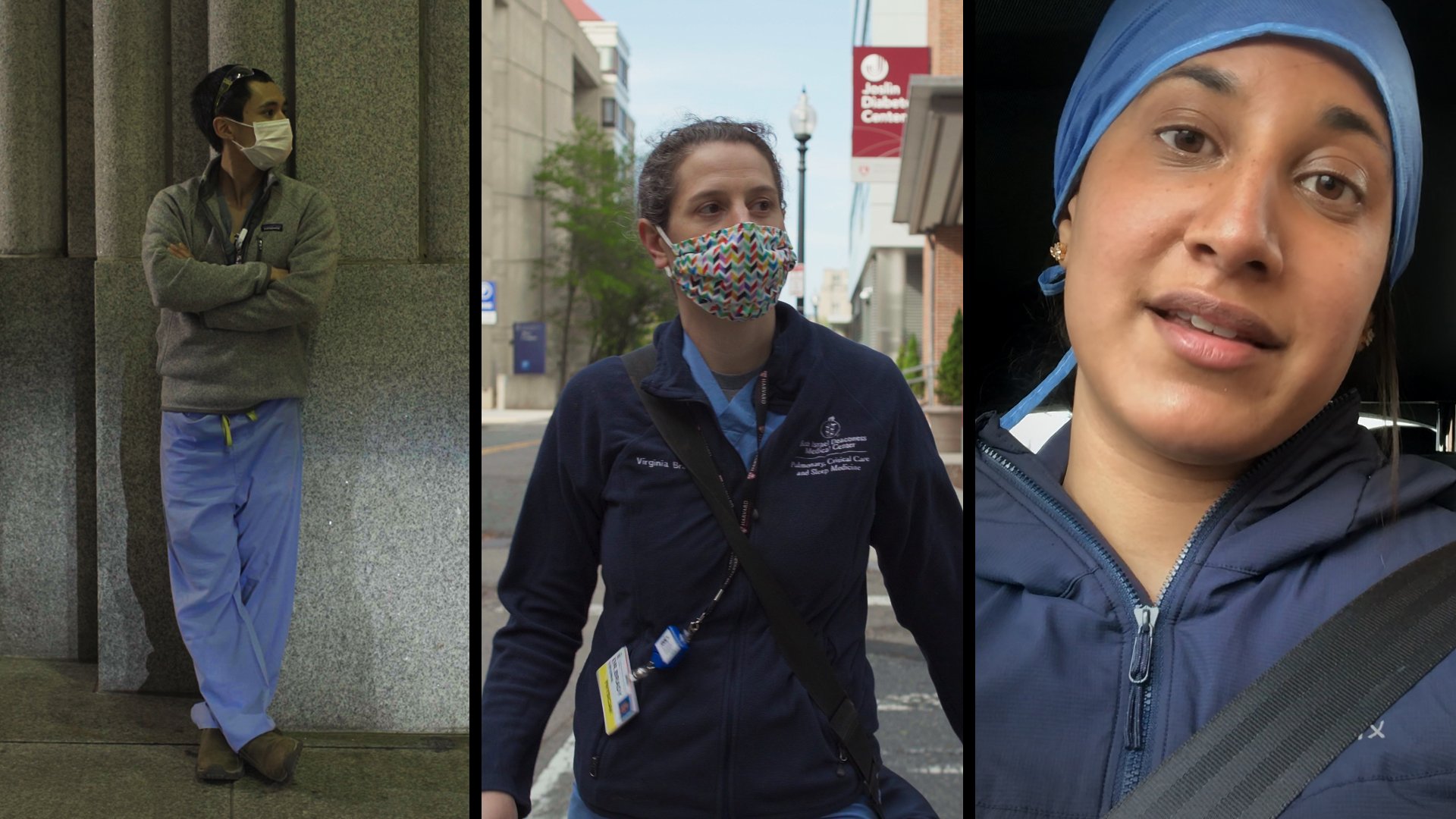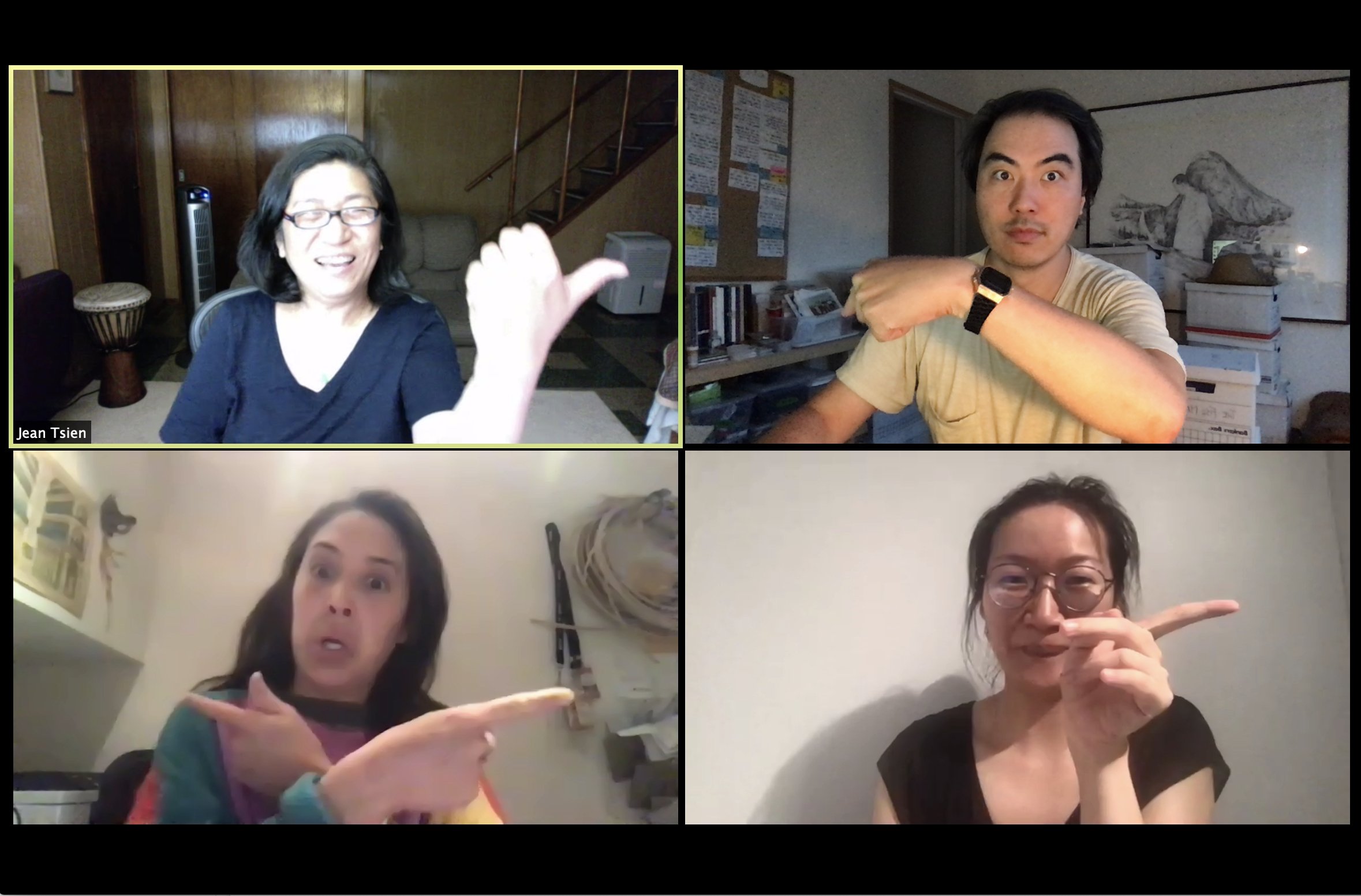Video Diaries Give a Firsthand Look at COVID-19
Annie Katsura Rollins is an interdisciplinary artist and researcher. Yung Chang is a writer and director. They are the filmmakers of PANDEMIC19, an award-winning documentary humanizing the frontline experience of three U.S. doctors during the first wave of COVID-19. Capturing the stories through their voices, the co-directors highlight the chaos, lay bare the heartbreak, and bring a sense of hope to viewers as we live, fight and survive together as the pandemic rages on.
The following interview has been edited for clarity and brevity.
Why did you choose to tell the story through video diaries?
Yung Chang: We were reading a lot of the news and headlines, and it was quite salacious. There was a lot of video camera footage of behind-the-scenes in the emergency rooms, the ICUs. But through all of that onslaught of intense imagery, we still felt there was a lack of emotional connection to the frontline doctors.
Annie Katsura Rollins: At the beginning of March, even though we had heard about COVID-19 in China, and then in Italy, we really had no understanding that it would actually reach our shores and affect us in this way. Dr. Alison Rudy, a best friend of mine, is an anesthesiologist in Minneapolis. She was reading stats and research of things coming out of China and Italy, and she said, "This is going to be really, really bad."
Alison asked me [about recording video diaries] because she knew she would be isolated and alone as a healthcare professional exposed to COVID-19. "I think I need to record video diaries to get through this. I don't think I'll have the presence of mind to remember what happened, and I'll need a place to put all of this every night." She couldn't predict what they would be, but she understood it would be a burden like no other.
It gave me the notion that this was going to be big. Other doctors were going to have this experience of being completely isolated, totally overburdened, possibly dealing with moral injury, and would need a place to put these stories. So that gave us the idea.

YC: We wanted to focus on the emotional tone of the doctors: their confessions, the intimacy. To allow all that chaos permeating outside the frame [by acknowledging] that we know it exists outside and in the hospitals behind these doctors.
And then to cut to these, what we're calling 'interstitials,' which are these apocalyptic, cityscape visuals, that would help to set and compliment the tone of these video diaries. But also just contextualize that eeriness of our collective experience.
How do the 'interstitials' reflect what is going on in the world?
YC: There's a complementary tone when you have a doctor recount a very graphic, emotional experience. And then to be able to cut away to these serene atmospheres...landscapes that we know are completely a result of COVID lockdown protocols.
It became the palette for the film. Very consciously, this is what we needed - silence and reflection in the film. Not to be a barrage of headlines.
AKR: We all say we're in this together, but we feel like we're in this apart. These haunting, empty streets amplify how we're all experiencing this quietness around the globe, and yet there's this common foe that we're all fighting.
As filmmakers, and people living through this pandemic, what was your experience in relation to what you were seeing from the doctors?
AKR: What we were experiencing was nearly antithetical to what the doctors were experiencing - high octane, high stress, high stakes. Yung and I are both artists and storytellers, but we have consciously chosen before the pandemic not to work together for the sake of our relationship. When the pandemic happened, we looked to each other and realized we’re collaborators going through this insane experience together. We started working together and it was therapeutic in a lot of ways.
I found that receiving the doctors' videos and diaries were so grounding for me at a time when I felt panicked and floating and spinning in a world of unknowns. That's what we hoped the film would actually do for everyone.

Why is your film about COVID different from others?
YC: Our creative approach is unique. We remain steadfast in the feeling that it should be quiet, reflective, and thoughtful. That it should be told through the voices of our doctors, which will humanize their experience and the COVID-19 experience. That it is not ripped from the headlines. It's not the investigative report. It's not the story of the failure of government protocol. It's not that story.
The disparities between economic class and racial divide, that is embedded in this film. The problems with private healthcare, that is embedded in the film. But we don't hammer it on the head.
On February 22, 2021, President Biden commemorated the 500,000 people who lost their lives to COVID-19. While infection and death rates have slowed, the battle is not over.
Yung Chang is a filmmaker of feature-length and short films. His films have been nominated and won awards including at the Toronto International Film Festival and the Emmys. Chang is a member of the Directors Guild of Canada.
Annie Katsura Rollins is an interdisciplinary artist whose work includes filmmaking, animation, and teaching. Most recently, Katsura Rollins joined the MABELLEarts team where she works with community arts.



